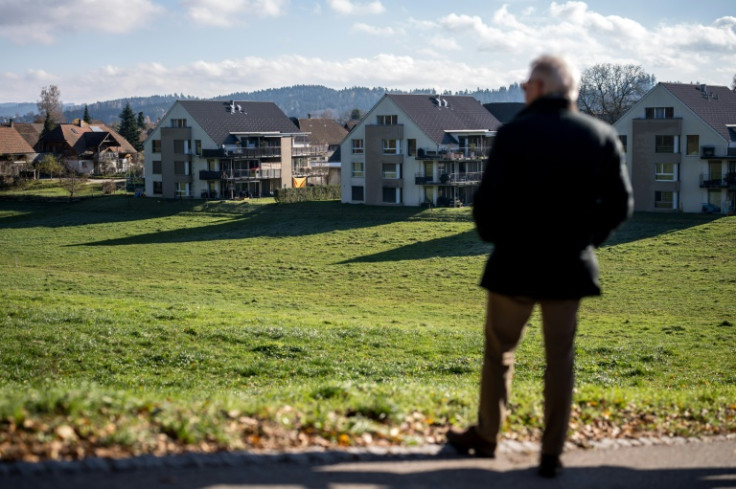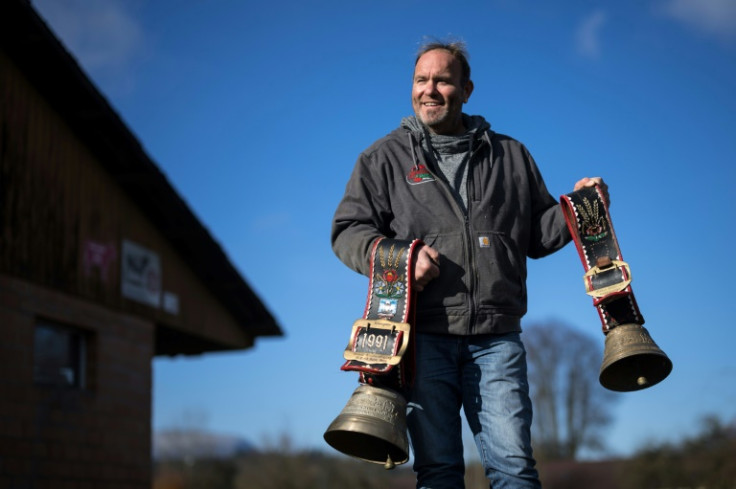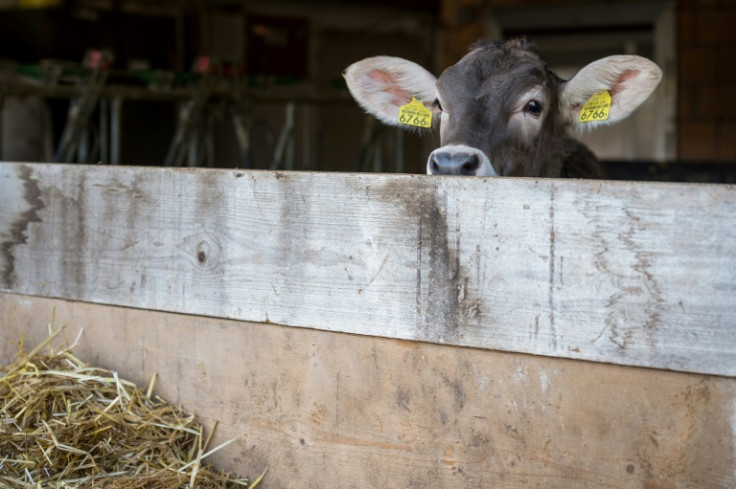
Cows grazing on lush pastures with ornate metal bells gently tinkling around their necks may be one of the ultimate symbols of Switzerland, but not everyone is enchanted by such traditional scenes.
In the village of Aarwangen in central Switzerland, a complaint was filed earlier this year over the noise levels from a herd of around 15 cows grazing overnight on a field next to a residential area.
Two couples in rental apartments overlooking the field asked authorities to intervene to make the farmer remove the bells at night.
The reaction was swift and fierce, with overwhelming demands for a local vote to protect the traditional use of bells.
"My first reaction when I heard about the complaint was one of surprise," Aarwangen's Mayor Niklaus Lundsgaard-Hansen, who lives near the field in question, told AFP.
"I wasn't aware that cows made a lot of noise, but I have learned that they can disturb some people."
He was even more surprised at the massive response.
Petitioners needed to gather backing from just 10 percent of those eligible to vote in the village of 4,800 people -- about 380 signatures -- to push the issue to a vote under Switzerland's direct democracy system.
Instead, they showed up with 1,099 signatures for the "Bell Initiative", aimed at maintaining the right of farmers to use cowbells at all hours.
"That's enormous," Lundsgaard-Hansen said.
The initiative was officially presented at a municipal assembly Monday evening, and the village decided it should be put to a popular vote that is expected to take place in June.
The backing was "overwhelming", Andreas Baumann, a neurologist who spearheaded the initiative, told AFP, adding that only four of the 166 people present at the meeting had opposed moving ahead with a vote.
Cowbells were once indispensable for keeping track of herds grazing on Alpine pastures, and while their usefulness has waned with the emergence of GPS trackers, they remain a powerful symbol of idyllic Swiss rural life.
Last week, rituals related to Alpine farming, including driving cattle up to high mountain pastures for the summer wearing the decorative bells, were added to UNESCO's Intangible Cultural Heritage of Humanity list.
But with many urbanites seeking tranquil havens in the countryside, often within commuter distance from cities and towns, the charm of cowbells sometimes wears thin.
A growing number of complaints have been lodged in recent years over noise levels from cowbells.
There have also been protests about churches ringing out the time every 15 minutes, night and day, as is typical in many Swiss communities -- something the "Bell Initiative" also aims to defend.
Such complaints frequently spark heated reactions in defence of traditions feared under attack in Switzerland -- a country of high immigration where foreigners make up a quarter of the population.
"It's about our tradition," Baumann said. "Do we want to preserve what our ancestors created, or do we just put that into a museum?"
"The bells are in the DNA of Swiss people, and here in Aarwangen we want to preserve that."
Set on the banks of the Aare river against a backdrop of snow-covered mountains, Aarwangen counts 19 working farms, according to Lundsgaard-Hansen.
But the village, half an hour's drive from Bern and about an hour to both Zurich and Basel, "is not really a farming community", he said.
The couples who filed the complaints about the cowbells likely had not expected such an overwhelming pushback.
One decided to withdraw their complaint, while the other is looking to move out of the village, the mayor said.
Regardless of which way the village votes, the farmer in question could still be ordered to remove the cowbells at night if authorities find they surpass acceptable noise levels.
A judicial ruling is expected soon.
Rolf Rohrbach, who runs a nearby cattle farm, said he loved the tradition.
"It gives me hope," he told AFP, insisting that the bells are needed to keep track of young cows.
Personally, he said he could think of nothing better than to hear the gentle ringing at night.
"When I sleep, I like it," he said. "I know my cows are home."











